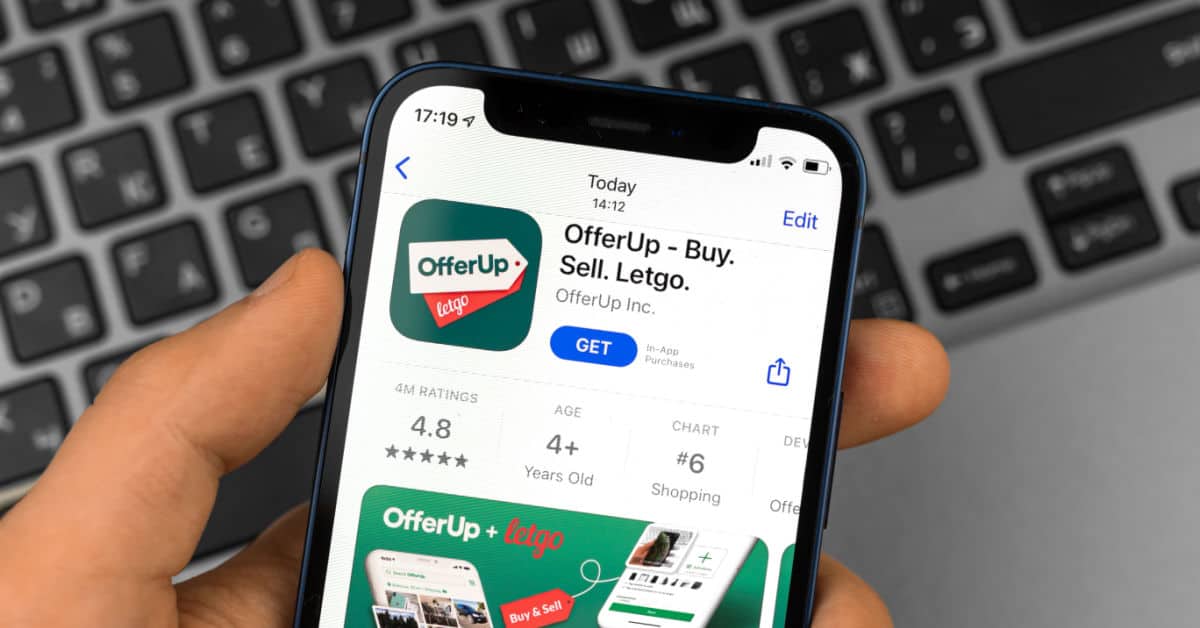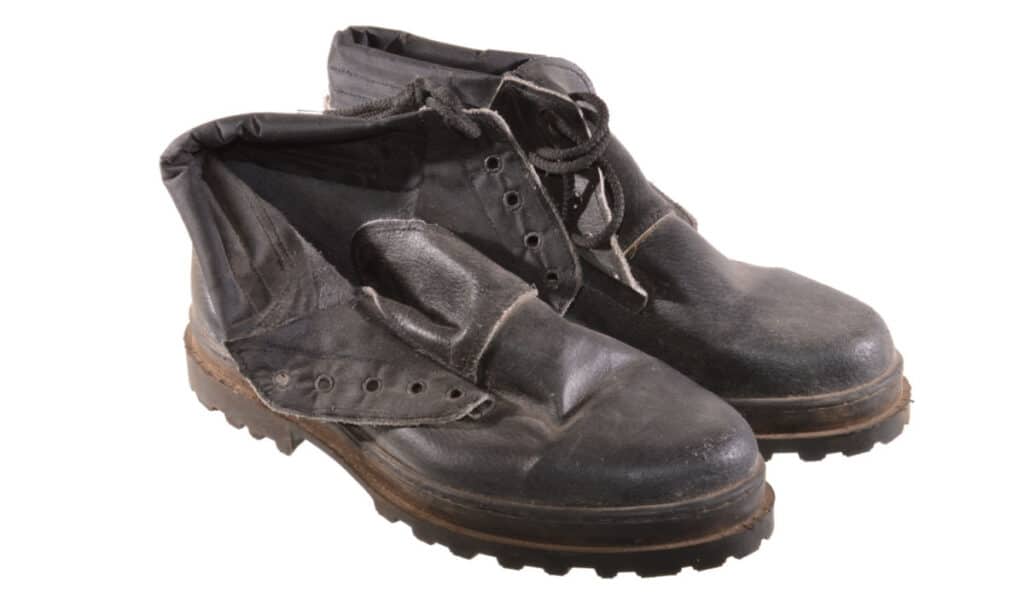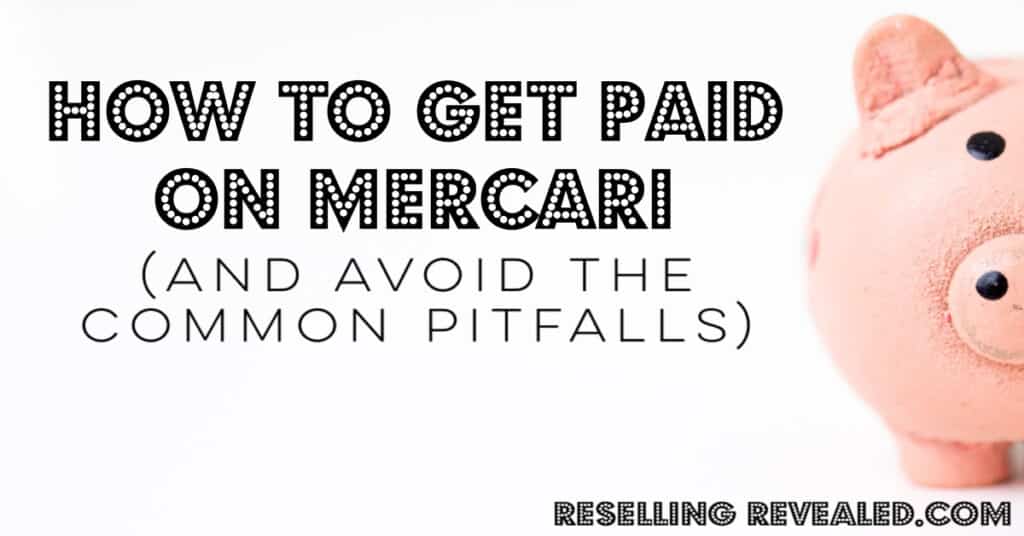As an Amazon Associate I earn from qualifying purchases.
OfferUp is a legit place to connect with people buying and selling products. But it is also possible to get scammed because its popularity has made it a magnet for scammers. But with appropriate precautions, you can dodge the negatives of this platform and get good deals.
In the past couple of years that I’ve been buying and selling on OfferUp I’ve seen more than a dozen different scams. However, if you’ve been around for a bit all of them start looking and sounding about the same.
Seasoned sellers rarely fall for such scams but, if you’re new, they might look a little less obvious. So let’s talk about what they are and how you can avoid them.
Common OfferUp scams include:
- Fake payments
- Phishing links
- Alternative payment methods
- Non-payment after shipping
- Trumped-up extra charges
- 2-step verification bypass
These OfferUp scams aim to get free products from sellers, cash from buyers, or identity and accounts in general.
In this article, you will learn more about how you can avoid each of the following OfferUp scams.
1. The Fake Payment Scam
OfferUp meetups can be dangerous as they come with a risk of robbery and violence.
You’re essentially meeting a stranger with a valuable product as a seller and significant cash as a buyer. Both buyers and sellers can be at risk with personal meetings.
In tamer instances, the deal goes down just as imagined. The seller shows up with a product, gets the asking price in cash or check, and goes home. It is only when he tries to cash the check or use the money that he finds that he is duped.
How To Avoid This as a Seller
If you meet up with the buyer, you must ensure that you do so in a public place.
One of the biggest drawbacks of in-person meetings is the possibility of violence.
How will the buyer react to getting caught if the buyer is indeed a scammer?
Will he proceed to snatch the product from you anyway?
Meeting in front of a police station can discourage troublesome elements from taking you up on the offer.
To be sure you’re not paid with fake cash, simply go with the buyer to a nearby shop and use the cash.
Don’t accept checks. Even genuine checks can bounce, and that’s no good if you’ve already given an item away.
2. The OfferUp Account Wash Scam
One of the more sinister scams on OfferUp makes use of Phishing. It is a practice of setting up a fake website that looks like the legitimate website one wants to Phish.
In the case of OfferUp, a tech-savvy scammer clones the OfferUp website and puts the clone’s links on his actual OfferUp listings.
OfferUp users unknowingly get taken to the clone site that the scammer owns. If they try to log in, their username and password are sent to the site owner, who can log in and wash their OfferUp account.
How To Avoid This
To avoid this, do not enter your username, password, or payment details into any website that isn’t OfferUp.com. Any website that says OfferUp on its header but has a different address than offerup.com is not OfferUp.
3. The Unprotected Payment Scam
This scam exists in every marketplace. From platforms like Fiverr to marketplaces like the Facebook Marketplace, everywhere people can trade, some individuals try to take advantage of the system.
Protective mechanisms like escrow are built into platforms like OfferUp, yet “sellers” with no intention of selling anything try to persuade buyers to make payments outside the venue.
An extension of the account clearance scam covered earlier goes like this. The seller uses a clone link sending the customer to a website that looks like OfferUp. Seeing familiar colors and logos, the customer assumes he’s making a payment in the OfferUp ecosystem and is protected by it.
However, the payment is being made on a clone site, and the seller has no obligation to ship any item.
Another way scammers deflect responsibility for sending products is to convince potential customers to Venmo them the cash. Whether PayPal friends and family payment sending feature is used or a cryptocurrency is employed as a medium, as long as your payment is not within the OfferUp ecosystem, you cannot behold the seller to anything.
How To Avoid This as a Buyer
Do not buy items by sending cash through any channel except the OfferUp payment channels. Do not message anyone your credit card details. And please avoid clicking links that take you outside of OfferUp.
4. The Ship First Scam
Another way scammers get the best of sellers is by offering to overpay.
You want it to be true so bad that you look past a major red flag: no one willingly pays more. Generally, sellers are contacted and asked to ship an item after accepting a check as payment.
The check includes a $100 to $250 shipping fee, which is absurd. It is cheaper to make international shipments, so why would a buyer pay $250 extra?
Because he isn’t going to pay.
Once the product is shipped and you try to get your cash, you’re told that the check is bad. In most instances, you must pay the fees for the check not clearing.
How To Avoid This as a Seller
Do not ship items in exchange for a check. Do not accept checks in general and avoid payment channels outside of OfferUp.
5. 2-step Bypass Scam
Another common scam on OfferUp and other platforms that use your cellphone number for 2-step verification is the 2-step bypass scam. Suppose you forget your Google or Facebook password.
What do you do?
You probably use your email to recover your account by resetting your password.
Your mobile phone number is often the last recovery mechanism you would use. But as long as your phone number is connected to any account, it can be used to reset that account’s password.
On OfferUp, a scammer will contact you and ask for your number. If you give him your number, he will say that he is sending you a code and wants you to repeat it just to confirm that you own the number you gave him.
In reality, what he has done is that he has requested a password reset on your Facebook or Google account. And the code has been sent to your phone to verify that you are the one resetting the password. He can hack your Google, Facebook, or Email account if you tell him the code.
How To Avoid This
Do not give your mobile phone number to anyone; if you do, avoid disclosing the contents of your messages. Avoid clicking any links sent to your mobile phone as well.
6. Extra Handling Charges Scam
Shipping charges are generally supposed to be invoiced through the OfferUp platform. However, some new customers can get duped by con artists who invoice for the shipping through a different method. When this happens, the portion of your payment sent through OfferUp is protected.
The scammer won’t ship any products, and you will get a refund on the OfferUp amount. But the “shipping fee” he charges via a different payment method will remain with him. And that’s the amount he is after, to begin with.
How To Avoid This
Do not engage in transactions with a seller who requests additional shipping payment via platforms outside the OfferUp payment channels.
Final Thoughts
OfferUp scams are rampant but easily avoidable. You are generally safe as long as you don’t pay outside of OfferUp, avoid accepting checks, and do not ship big-ticket items without receiving payment.
Scammers pursue the easiest mark, and if you avoid dealing with new accounts, you will not get duped.







